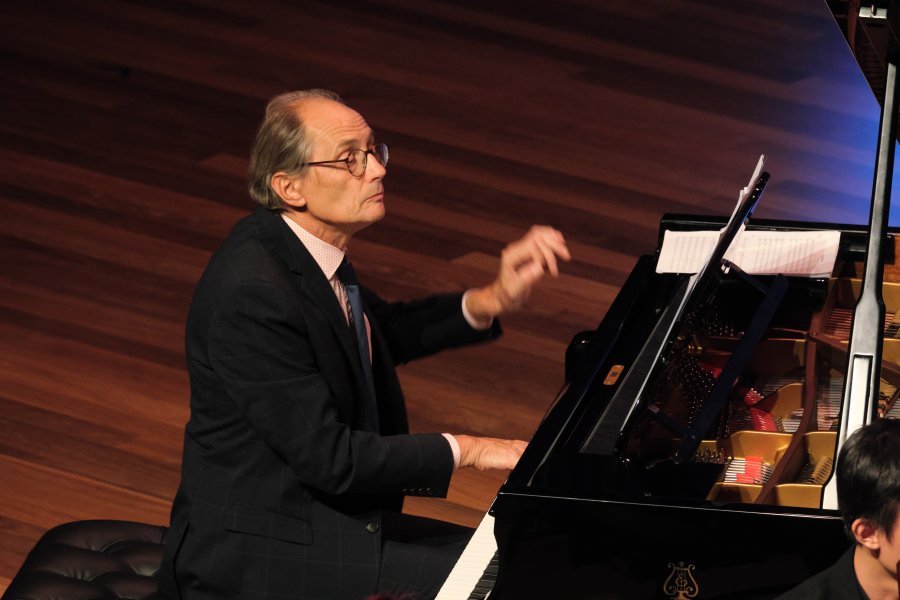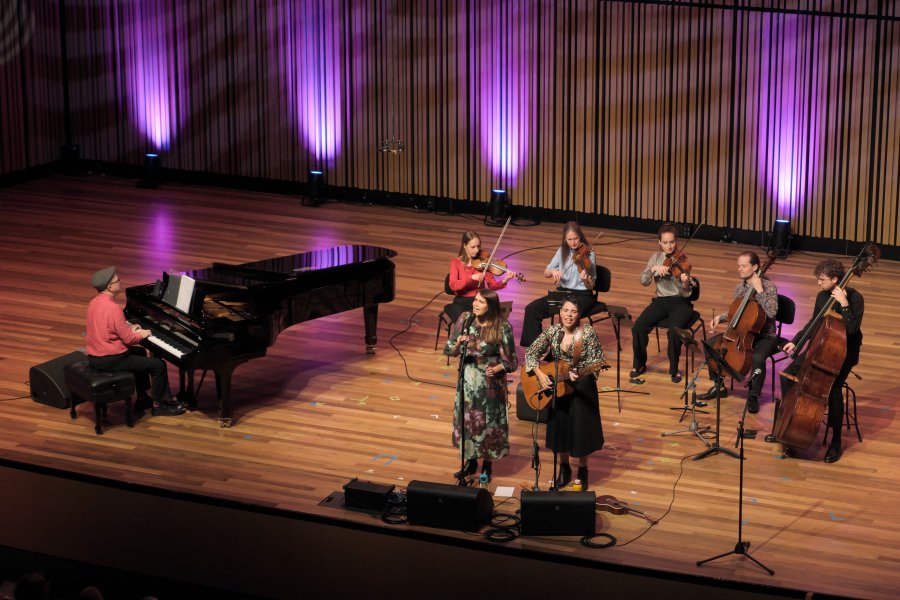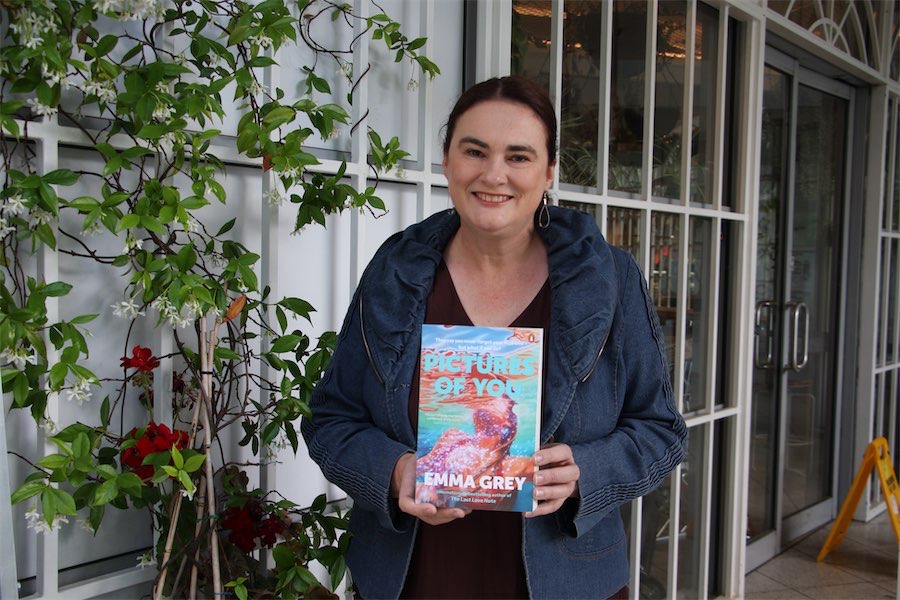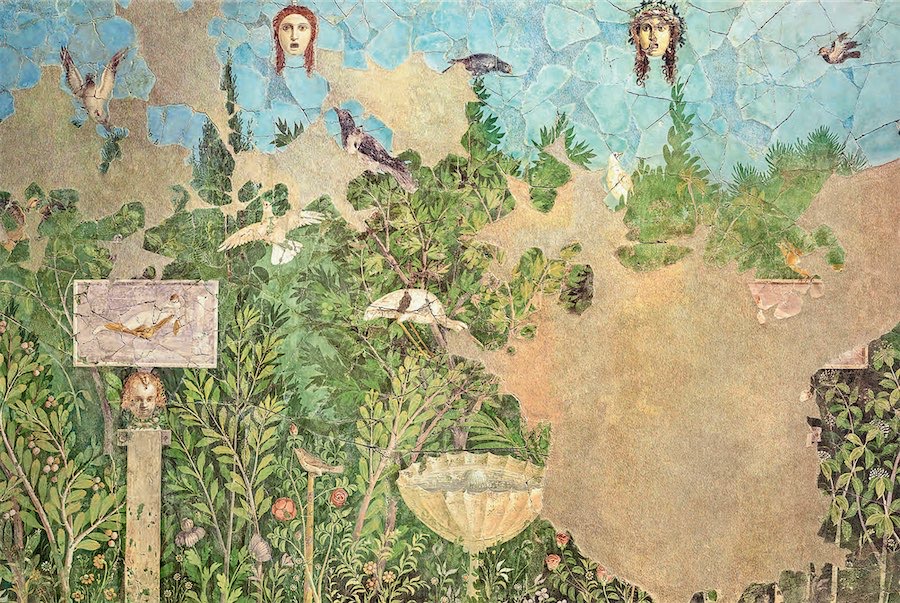
Canberra International Music Festival / Concert 15, Mulanggari. At Snow Concert Hall, May 5. Reviewed by HELEN MUSA.
Making live music for real-time listeners was the main thrust of Sunday’s closing concert for the 30th Canberra International Music Festival, appropriately themed Mulanggari (alive).
But not just that. Retiring artistic director Roland Peelman was keen to make his mark by asserting the primacy of our First Peoples’ music and especially that of powerful female creators over thousands of millennia.
To this end, the near-capacity house at Snow Concert Hall was treated first up to a suite of songs by the Stiff Gins, Kaleena Smith and Nardi Simpson, in new arrangements by jazz musician Jonathan Zwartz that came as quite a surprise to some of their fans, with legendary jazz pianist Kevin Hunt, the Dudok Quartet Amsterdam and bassist Ben Ward turning the normally upbeat songs into a complex musical treat.
Opening with Yandool by Smith, sung in Wiradjuri, the first segment, mostly sung in English, paid tribute to the gentle sweetness of her country near Narrandera, while Simpson’s cheekier Bear & Bee changed the pace, giving the duo a chance for some affable chit-chat about how they had met and founded the band at Sydney’s Eora College 25 years ago.
Smith and Simpson completed the first half of the program with their a cappella performance of Dust in Wiradjuri and Yuwaalaraay, dedicating it to the “deadly” Dudok Quartet, due to fly back to Amsterdam on Monday.
The second half of the program saw Peelman’s long-held dream of bringing new music, First Nations music and women’s music together, come to fruition in a feast of contemporary work.
It opened with Walimbaya, (“return” in Yuin) a very short work by composer Brenda Gifford which gave bassist Ward an opportunity to express his virtuosity, accompanied by Gifford on clapsticks. This had been composed in 2022 for Ward as part of the Bundian Way commissioned by the CIMF.

Three substantial works followed.
First was the strikingly flamboyant Creature Feature by composer-in-residence Holly Harrison, where Claire Edwardes, Niki Johnson and Veronica Bailey battled each other using a full array of percussion instruments while Edwardes, upstage, underscored the work with rising scales on the vibraphone.
Another striking performance followed in Brenda Gifford’s substantial work, Wadhu, (“skin”) a Merlyn Myer Music Commission that premiered last year in Melbourne with Edwarde’s group, Ensemble Offspring.
Simpson’s composition Burruguu (“time of creation”) followed. This had been written in 2021, also for Ensemble Offspring as part of the Ngarra Burria new music project.
As the concert drew to an end, violinist Véronique Serret stepped downstage to pay tribute to Peelman’s support of “so much new music” before she and didgeridoo master William Barton performed their joint composition, Heartland.
The last part of the evening involved a short speech by CIMF chair Genevieve Jacobs, mostly focusing on Peelman’s mighty contribution to the festival over the last 10 years, but also singing the praises of the Snow Concert Hall, which, with nearly 1000 seats, had largely been filled throughout the festival.
Peelman then told the audience of well-wishers that the festival would be in good hands when his successor Eugene Ughetti takes over before, on his urging, the large on-stage ensemble, which by now included Canberra’s Luminescence Chamber Singers, concluded the evening with Simpson’s Yarrager Mayraa, arranged by Zwartz and Peelman.
Who can be trusted?
In a world of spin and confusion, there’s never been a more important time to support independent journalism in Canberra.
If you trust our work online and want to enforce the power of independent voices, I invite you to make a small contribution.
Every dollar of support is invested back into our journalism to help keep citynews.com.au strong and free.
Thank you,
Ian Meikle, editor




Leave a Reply